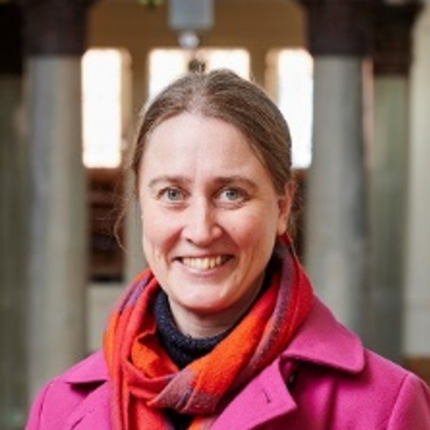The potential closure of language degrees at the University of Aberdeen has been met with understandable outrage across the language education sector.
We share this concern, and about the geographic “cold spots” that closures create. We also share the view that the graduates of language degrees contribute important knowledge and skills to the economy and society.
However, the reported fall in student numbers at Aberdeen – the equivalent of 62 full time first year students in 2021 to only 27 in 2023 – makes it likely that the cost of teaching and supporting students outstrips the income they contribute.
The proposed solutions to this financial unsustainability – closing all or most of the language degree programmes – are based on the assumptions that fewer and fewer young people want to study languages and that languages are expensive to run.
We disagree. We believe it is possible to design language programmes that are attractive to students and financially sustainable.
Languages in context
Universities would not close language degrees if demand was healthy. But only one in two young people take a language GCSE, and entries to French, German and Spanish A level have fallen again by more than 10% this year. Much can be explained by attitudes towards languages in the UK, including the belief that speaking English is “enough”; formal language learning doesn’t work; technology makes language learning redundant; and that the version of a language used by its “native” speakers is the only legitimate variety. These attitudes also lead to the undervaluing of language skills by UK employers.
On the other hand, there is “unmistakable enthusiasm for language learning” outside of formal settings, as can be seen by the popularity of apps such as Duolingo – enthusiasm that could attract students to study languages at universities if the right programmes were available.
Universities would not close language degrees if they were financially sustainable. But it is common to offer a large number of joint honours programmes and for only a small number of students to choose each programme. For example, at the University of Aberdeen, French is offered with business, English, geography, history, law, linguistics, politics, psychology and others – a pattern seen across the UK.
Clashes and cold spots
Offering multiple small programmes causes administrative complexity. The timetabling challenge is immense – no language module can clash with any programme where joint honours is offered. Ensuring that students are taking the correct modules is not straightforward: students might erroneously be offered modules that are not running and not offered modules that are, or they might discover mid-way through the year that they have insufficient credits. And enormous resource is required to maintain programme documentation and online course descriptions.
Many universities – most recently Aston, Coventry, Huddersfield, Hull and Sunderland – have closed languages. Becky’s research shows that most English universities with below average entry tariffs – widening participation (WP) universities – now do not offer language degrees. And that there are large areas of the north, east and southwest of England further than 60 km away from a below average tariff university offering degree-level languages programmes.
This is a social justice issue: students from less-privileged socioeconomic backgrounds are more likely to commute and are therefore excluded from studying languages. And the situation at the University of Aberdeen shows that it is not only lower tariff universities where languages are at risk.
Single or joint
York St John University, where Rachel is head of the School of Education, Language and Psychology, and Becky was previously subject director for languages and TESOL, is a WP university with 40 per cent of students from the least privileged socioeconomic backgrounds (POLAR quintiles 1 and 2).
Unlike most WP universities, language degrees are now thriving. In a forthcoming chapter for the collection Innovation in language learning and teaching: the case of England, Northern Ireland, Scotland, and Wales, we describe the curriculum transformation that led to this success. We summarise our key message here, in the hope that it may be of use to others working in WP universities or where languages are unsustainable in their current form.
York St John previously offered degrees in British Sign Language (BSL), French, German, Japanese and Spanish in combination with business, education, English and TESOL. However, languages were identified as being unsustainable and their future hung in the balance. After analysing programme and module enrolment data to understand students’ needs and preferences, we decided to close French, German and Spanish, continue to offer BSL and Japanese, and launch Korean. By offering languages not taught in schools, we reached students who had been self-studying – thus tapping into the “unmistakable enthusiasm” for language learning described above.
We also closed all joint honours programmes, replacing them with an innovative programme design that looks like joint honours, but is administered as single honours within one subject area. We replaced 37 programmes with five, for example BA BSL, Deaf Studies and Linguistics; BA Japanese, Intercultural Communication and Linguistics; and BA Korean, TESOL and Linguistics.
This saved languages from closure. The number of first year students on language programmes tripled – from 52 in 2017 to 165 in 2021 – with the income from student fees increasing even more because it was no longer split across two subject areas.
The new programmes are sustainable, with a vastly reduced administrative burden: the language modules are straightforward to timetable, no longer impacting on other programmes in the university; the module diets are simple to generate; and far less resource is involved in marketing and quality assurance.
Navigating between competing demands
The University Council of Modern Languages (now University Council For Languages) and British Academy reported that joint honours programmes have not suffered the same decline as other language programmes. They recommend that universities should expand “the range of courses in combination with other […] subjects.”
But this doesn’t take into account the impact of having multiple small programmes: the drain on resource in terms of timetabling, module diets, marketing, and quality assurance, and the impact of errors on students. Our innovative solution to these competing demands is to design programmes that look like joint honours from the students’ perspective but are administered as single honours, within one subject area.
The fall in students applying to study languages at university, combined with the administrative complexity of offering multiple joint honours programmes, is inevitably leading to programme closures. Arguments about the value of language degrees to society cannot get around the reality that the income is insufficient to cover costs in many departments, especially in WP universities.
We present an alternative design – one or two attractive and sustainable tailor-made programmes per language. In our case, this resulted in increased recruitment and saved languages as a subject area.















How sad that the model for ‘saving’ languages described here was to close all three existing languages.
We closed three of the five original languages and acknowledge the enormous impact on staff and students. Now that the design is sustainable, with a larger number of students studying languages than is common for a WP university, it would be great to introduce more languages – especially if we can find another language like Korean where demand from students is strong.
Becky and Rachel, have you reconsidered the traditional year abroad as part of your innovation? This seems to be another administratively complicated and expensive aspect that has only become more so since Brexit and in the wake of Covid and increased concern and awareness of climate sustainability.
There is a compulsory year abroad on the Japanese and Korean programmes which is transformational for the students. But we know that other people are looking into alternate models such as virtual study abroad. We actually had a really unusual model originally – a three year programme where the credits gained at the host university were transferred into York St John credits. But we moved to a more standard four year model because it was putting too much pressure on students.
Thanks for sharing, both the original piece and for responding to my quesiton!
Thank you for your comment! In case you are not aware, UCFL has a Year Abroad Special Interest Group which may be of interest: https://university-council-for-languages.org/year-abroad/
Thanks for the post, Becky and Rachel! Could I ask your thoughts on student retention rate and NSS metrics on top of the student enrolment rate (thus financial sustainability)? Korean, for example, is a language not taught in school, so it is understandable that students have “unmistakable enthusiasm” to study the language at the university level. Given that academic setting is very formal and exam-oriented, can the initial enthusiasm sustain over the course of study, potentially reflected in the student retention and NSS? What do you think?
Thank you for the question, Yeji! Now that recruitment is good, it’s important to turn attention to supporting the students to thrive, as they adjust to formal study of a language for potentially the first time. Could the assessments in the first year all be pass/fail rather than graded, for example? Or could they be creative assessments with no exam component? You say that the academic setting is ‘very formal and exam-oriented’, but I don’t think it has to be, especially if that is causing students to lose enthusiasm for their studies. I would love to talk more with you… Read more »
I completely agree that the assessments can be relaxed and less structured. Students should enjoy studying languages, not suffer from it! Yes, it would be great to further discuss the practical side of how to implement the change — i.e. mainly how to persuade student and teacher communities for less formal curriculum. I found that it is usually the student community who is resistant to innovative, contemporary teaching approach or new ideas for teaching practice. This makes us sit in our comfort zone, dumping grammar points and word list because that’s what students want (i.e. student voice). Enjoyment is the… Read more »
This is very interesting, Yeji. Finding a way for students to maintain the enthusiasm they had while self studying is definitely the goal! Let’s talk in person about this.
Thanks Becky and Rachel for a very engaging and informative article. I do hope you can find a way to reintroduce our European neighbourhood languages. The collapse in language studies in schools and at university is an ongoing tragedy.
We agree! And we hope that our work makes the study of languages viable at widening participation universities like York St John, where we created the curriculum model we outline here. Most of the students who apply to us are interested in languages that are not taught in their school, though we think that our model could work with a variety of languages and in a in a variety of types of institution. Interest in languages associated with popular culture, as our students experience it via the internet, and in languages used here in the UK (for example British Sign… Read more »